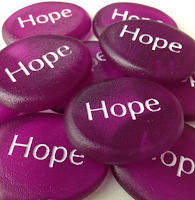As I write
my last Pastor’s letter, I find myself filled with many different emotions and
feelings. Certainly, a feeling of profound and deep gratitude tops my list. I
am so grateful that God called me to Manassas to serve, work, and minister with
you in the name of Jesus Christ these past 11 years.
Joy is
gratitude’s partner, but even so, I am also filled with sadness as I
contemplate saying goodbye to you all. Our lives have been woven together in so
many wonderful ways that I expect come Fall, the presence of your absence,
especially on Sundays, will be all too acute.
I leave
with a sense of great confidence in and hope for MPC. We are a strong, vibrant
congregation, and while transitions are unsettling, I know that God will see us
through, both you and me.
The
seething debate of late over racism and bigotry shows how much work we have
still to do as disciples of Jesus Christ to bring healing and reconciliation to
all of God’s creation. We cannot equivocate: racism is hatred; bigotry is
hatred; misogyny is hatred; violence is hatred; they have no place in God’s
kingdom.
For all
our sense of revulsion as we look at symbols of racism and anti-Semitism, what
the current debate should remind us of is the more insidious racism that lurks
beneath the surface, behind closed doors, in words spoken with a nod and a wink
– “dog whistles”, from women and men who vigorously protest, “But I am not a racist”.
This is
where our Lord teaches us: “Beware of the
yeast of the Pharisees, that is, their hypocrisy. … whatever you have said in
the dark will be heard in the light, and what you have whispered behind closed
doors will be proclaimed from the housetops.” (Luke 12:1-3)
The Belhar Confession, the newest addition
to our Book of Confession, teaches
us, “We believe that Christ's work of
reconciliation is made manifest in the church as the community of believers who
have been reconciled with God and with one another; that unity is, therefore,
both a gift and an obligation for the church of Jesus Christ; that through the
working of God’s Spirit it is a binding force, yet simultaneously a reality
which must be earnestly pursued and sought; one which the people of God must
continually be built up to attain; that this unity must become visible so that
the world may believe that separation, enmity and hatred between people and
groups is sin which Christ has already conquered, and accordingly that anything
which threatens this unity may have no place in the church and must be
resisted;”
How many
times have we heard God’s words to us through the prophet Micah that we are to “do justice, love kindness, and walk humbly
with God.” (Micah 6:8) To do justice
is to build a world of reconciliation, hope, peace, grace, and love for all
God’s children. To do justice is to confront hate with love, as a large,
ecumenical group of courageous clergy did in Charlottesville. To do justice is
to continue building the foundation of the very Kingdom of God, here at MPC and
everywhere God calls us.
May the Lord Bless You and
Keep You – Always!
Pastor Skip














